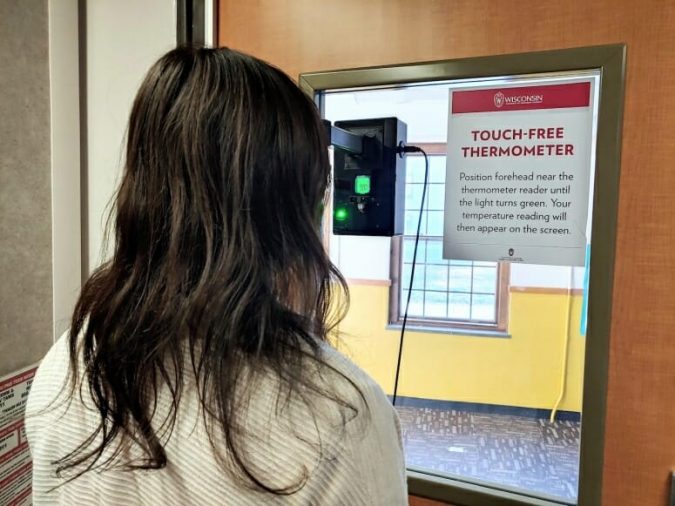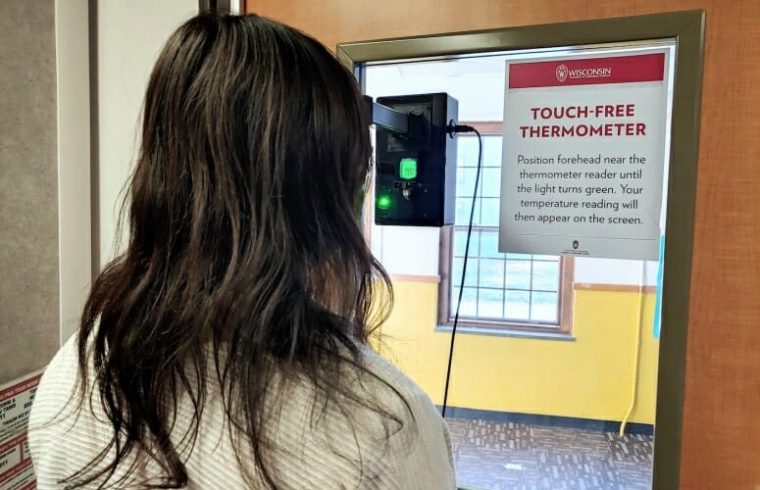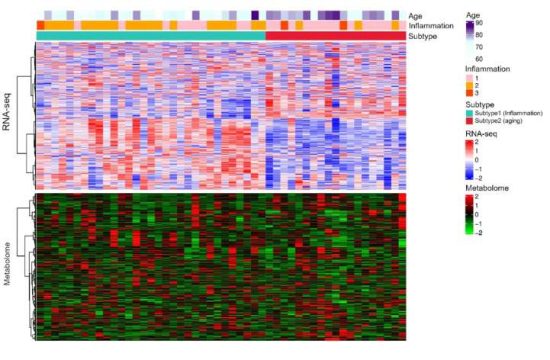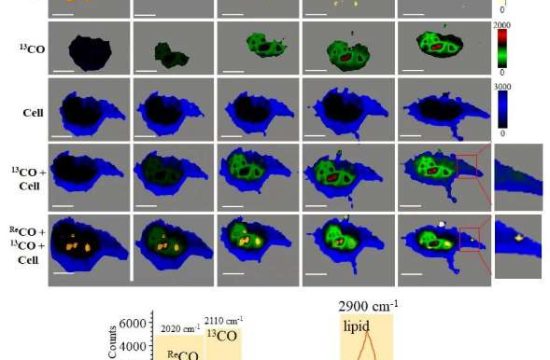Jason Daley

MADISON (UWmadison)–When Lennon Rodgers visited the dentist in the midst of the COVID-19 pandemic, he had a moment of inspiration. The receptionist awkwardly reached around the plexiglass barrier to take his temperature, which seemed to negate some of the safety precautions.
An automated, contactless thermometer, he thought, would be a much better solution.
“I knew there had to be a way to develop a low-cost solution to take forehead temperatures hands-free,” says Rodgers, who already has played a role in several COVID-19 protective equipment innovations. “I looked online and found some existing products, but they were all pretty expensive and/or looked poor-quality.”
So, Rodgers, director of the University of Wisconsin–Madison’s Grainger Engineering Design Innovation Laboratory, created a prototype “contactless” thermometer himself by borrowing the sensor from a commercially available thermometer and adding a microcontroller and distance sensor controlled by open-source code.
Now, devices based on that initial design are helping UW–Madison students monitor their COVID-19 symptoms. They’ve been deployed in residence halls on campus set aside for students isolating for at least 10 days after a positive COVID-19 diagnosis. Few of those students own thermometers, and that’s why the contactless thermometers, which cost approximately $100 each, are important.
Rodgers passed his initial idea to Nathan Strachen, a UW–Madison electrical and computer engineering graduate student and a Fab Fellow at the innovation lab. Strachen has made his own set of tweaks.
“The prototype was something Lennon put together very quickly,” says Strachen. “I improved the mechanical design quite a bit and added a different microcontroller that has the ability to connect to the internet.”
Now based on a small, single-board computer called a Raspberry Pi, the machines have additional computer power that could support more functionality. Strachen, who researches active transistor-based circuits that drive small antennas in the lab of UW–Madison electrical and computer engineering professor Nader Behdad, would also like to shift future designs away from using components from commercially available handheld thermometers toward off-the-shelf parts, including thermal imaging cameras.
While the thermometers solve a very specific challenge right now, Strachen says if they are sophisticated enough, yet quick and easy to manufacture, they could play a bigger role in keeping the university community healthy. If an entire network of the machines were deployed across campus in residence halls and other buildings, for example, they might be a good way to track infections or mitigate the virus’ spread. Rodgers says future versions of the machines could also monitor more than temperature, tracking skin discoloration, runny noses and other symptoms.








